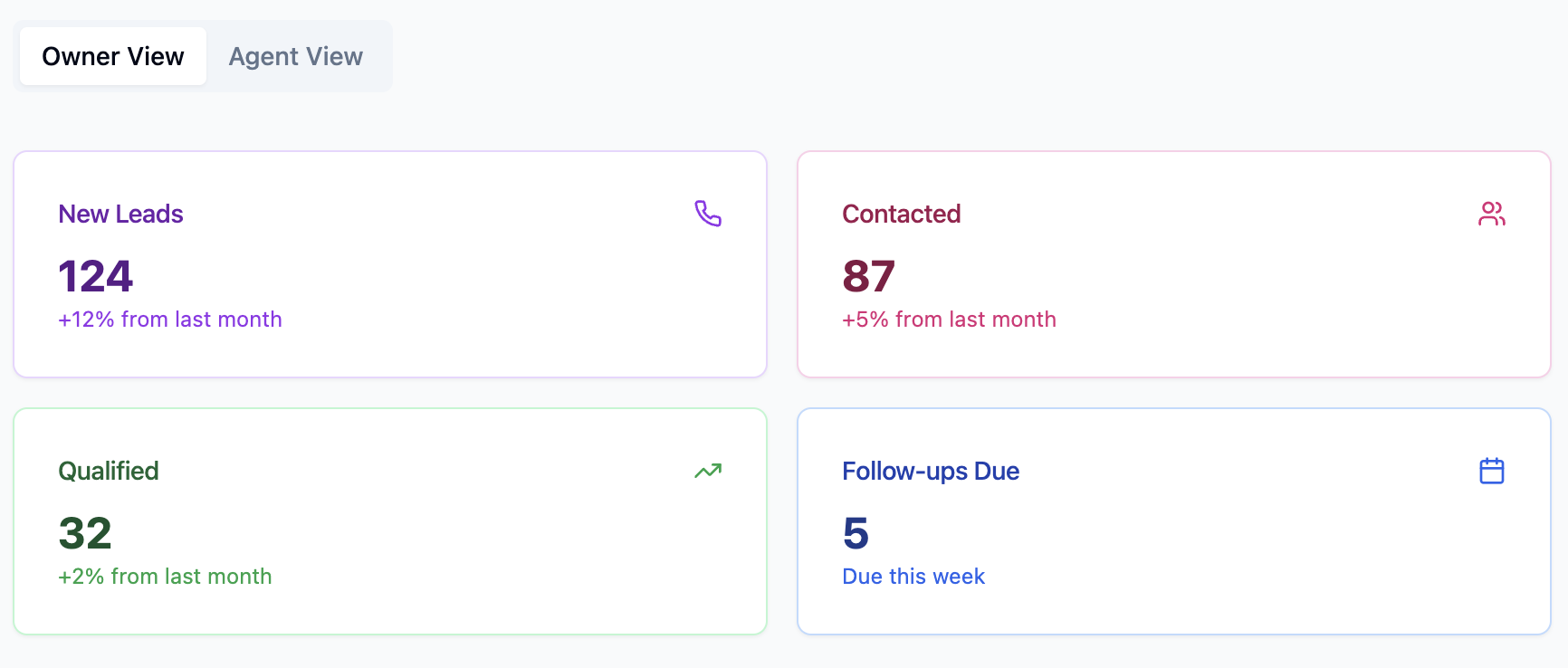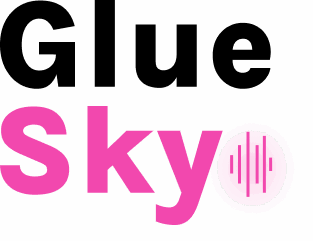CRM Tools Meaning: Decoding the Powerhouse Behind Customer Relationship Success
In the vocabulary of modern business, “CRM” is an acronym you’ll encounter frequently. But beyond knowing that CRM stands for Customer Relationship Management, what is the actual CRM tools meaning? What specific functionalities and capabilities do these tools offer, and how do they empower businesses – particularly in demanding sectors like real estate – to thrive? Understanding the definition and purpose of CRM tools is the first step towards harnessing their immense potential.
This guide will delve into the core meaning of CRM tools, break down their essential components, explore their benefits, and illustrate how advancements in Artificial Intelligence, exemplified by platforms like Glue Sky, are revolutionizing what these tools can achieve. Whether you’re a solo entrepreneur or part of a large enterprise, grasping the essence of CRM tools is crucial for success in today’s customer-centric world.
Defining CRM Tools: What Are They?
At its heart, the meaning of CRM tools refers to the specific features, functionalities, and applications within a Customer Relationship Management (CRM) software system that enable businesses to manage, analyze, and improve interactions with their current and potential customers. These tools are designed to support and streamline various aspects of the customer lifecycle, from initial lead generation and sales processes to ongoing customer service and retention efforts.
Think of a CRM system as the overarching strategy and platform for managing customer relationships. CRM software tools explained simply are the individual instruments within that platform that allow you to execute this strategy effectively. They are the digital levers and dials that help you organize data, automate tasks, gain insights, and build stronger, more profitable customer connections.

CRM tools, like those shown in the Glue Sky dashboard, provide a centralized platform for managing customer interactions.
Core Categories and Examples of CRM Tools
To fully grasp the CRM tools meaning, it’s helpful to categorize them by their primary functions. While specific tools can vary between CRM platforms, most robust systems offer capabilities in the following areas:
1. Contact Management Tools
These are foundational tools for organizing information about individuals and companies.
- Centralized Database: A tool for storing all contact information (names, emails, phone numbers, addresses, company details, social media profiles). This is the core of your CRM database.
- Interaction History Logging: Tools to record every touchpoint with a contact (emails, calls, meetings, notes, support tickets).
- Segmentation Tools: Functionality to group contacts based on various criteria (e.g., demographics, purchase history, lead status) for targeted communication.
- Duplicate Management Tools: Utilities to identify and merge duplicate contact records, ensuring data accuracy.
2. Sales Force Automation (SFA) Tools
These tools are designed to streamline and automate various stages of the sales process.
- Lead Management Tools: For capturing, tracking, qualifying, and distributing leads to sales representatives. Effective CRM lead management is crucial.
- Opportunity/Deal Management Tools: For tracking potential sales deals through a visual pipeline, managing deal stages, values, and probabilities.
- Sales Forecasting Tools: Utilities to predict future sales revenue based on current pipeline data.
- Quote and Proposal Generation Tools: Some CRMs include tools to create and send sales quotes or proposals.
- Activity Management Tools: For scheduling and tracking sales activities like calls, meetings, and follow-ups.
3. Marketing Automation Tools
These tools help businesses plan, execute, and measure marketing campaigns.
- Email Marketing Tools: For creating, sending, and tracking email campaigns, including newsletters and promotional emails. Often includes template builders.
- Campaign Management Tools: For planning and managing multi-channel marketing campaigns.
- Drip Campaign/Nurturing Tools: For setting up automated sequences of communications (email, SMS) to nurture leads over time. CRMs with drip campaigns are popular.
- Social Media Management Tools (sometimes integrated): For scheduling posts, monitoring social mentions, and engaging with followers.
- Landing Page Builders (sometimes integrated): Tools to create landing pages for lead capture.
4. Customer Service and Support Tools
These tools help businesses provide excellent customer service and manage support requests.
- Help Desk/Ticketing Systems: For managing customer inquiries, issues, and support tickets.
- Knowledge Base Tools: For creating and managing a repository of FAQs and support articles.
- Live Chat Tools (sometimes integrated): For providing real-time support on a website.
5. Reporting and Analytics Tools
These tools transform raw CRM data into actionable business intelligence.
- Dashboards: Customizable visual displays of key performance indicators (KPIs).
- Report Generators: Tools to create detailed reports on sales performance, marketing ROI, customer service metrics, and more.
- Data Visualization Tools: Charts, graphs, and other visual aids to help understand trends and patterns.
6. Workflow Automation Tools
These are overarching tools that automate repetitive tasks across different CRM functions.
- Rule-Based Triggers and Actions: Define rules that automatically trigger specific actions (e.g., when a new lead is created, automatically assign it and send a welcome email).
The Importance of CRM Tools in Real Estate
For professionals in the real estate industry, understanding the CRM tools meaning is particularly vital. Real estate is heavily reliant on relationships, long sales cycles, and managing vast amounts of data. Specialized real estate CRM tools help agents and brokers:
- Manage detailed client preferences for properties.
- Track leads from various sources (online portals, open houses, referrals).
- Nurture long-term relationships with past clients for repeat business and referrals.
- Coordinate complex transactions involving multiple parties.
- Automate follow-up for new listings, open houses, and market updates.
Essentially, these tools bring order and efficiency to the often chaotic world of real estate sales and client management.
The Evolution: AI-Powered CRM Tools by Glue Sky
The traditional meaning of CRM tools centers around organization, tracking, and basic automation. However, Artificial Intelligence (AI) is fundamentally reshaping this definition. Platforms like Glue Sky are introducing a new breed of AI CRM tools that are more intelligent, proactive, and capable of handling complex interactions autonomously.
Here’s how Glue Sky’s AI enhances the meaning and capability of CRM tools:
- AI Communication Tools:
- AI Cold Calling Tool: This isn’t just a dialer; it’s an AI voice assistant that makes outbound calls, engages leads in natural conversation, qualifies them, and can even book appointments. This revolutionizes traditional SFA tools for lead outreach. Learn about our AI cold caller.
- AI-Generated Email & SMS Tool: The AI doesn’t just use templates; it crafts personalized, context-aware emails and text messages, making automated communication feel remarkably human. This elevates marketing automation tools. See our texting CRM features.
- Intelligent Workflow Automation Tools: Glue Sky’s AI orchestrates entire outreach campaigns, combining calls, emails, and texts into adaptive sequences. The “workflow” is not just a series of pre-set steps but an intelligent, responsive engagement process. It’s like having an AI sales agent.
- AI-Powered Lead Qualification Tools: Instead of agents manually sifting through leads, the AI can conduct initial qualification conversations, identifying and prioritizing the most promising prospects.
With Glue Sky, the CRM tools meaning expands from tools *for* humans to use, to intelligent tools that *act on behalf* of humans, performing sophisticated tasks that were previously impossible to automate at this level.
Benefits of Effectively Using CRM Tools
Regardless of the specific industry, businesses that effectively leverage CRM tools gain significant advantages:
- Enhanced Customer Understanding: Centralized data provides a holistic view of each customer.
- Improved Customer Satisfaction and Loyalty: Personalized interactions and proactive service build stronger relationships.
- Increased Sales Efficiency and Productivity: Automation of routine tasks and streamlined processes free up time for core selling activities.
- Higher Sales Conversion Rates: Better lead management and consistent follow-up lead to more closed deals.
- More Effective Marketing: Targeted campaigns and automated nurturing improve marketing ROI.
- Better Internal Collaboration: Shared access to customer data ensures team members are aligned.
- Data-Driven Decision-Making: Analytics and reporting provide insights for strategic planning.
Conclusion: CRM Tools Are the Engine of Customer-Centric Success
So, what is the CRM tools meaning? It signifies a suite of integrated software functionalities designed to empower businesses to manage every facet of their customer relationships with unprecedented efficiency and insight. From organizing contacts and automating sales tasks to launching targeted marketing campaigns and analyzing performance, these tools are fundamental to thriving in a competitive, customer-driven market.
For real estate professionals, specialized CRM tools are particularly crucial for navigating the complexities of their industry. And with the advent of AI-powered platforms like Glue Sky, the very definition and capability of these tools are expanding. No longer just passive organizers, modern CRM tools are becoming intelligent assistants that can proactively engage leads, automate complex communications, and drive business growth in ways previously unimaginable.
Understanding and strategically implementing the right set of CRM tools is no longer optional – it’s the cornerstone of building a resilient, profitable, and customer-focused business.
Ready to explore how next-generation AI CRM tools can transform your real estate business? Discover Glue Sky and experience the future of customer relationship management today!
